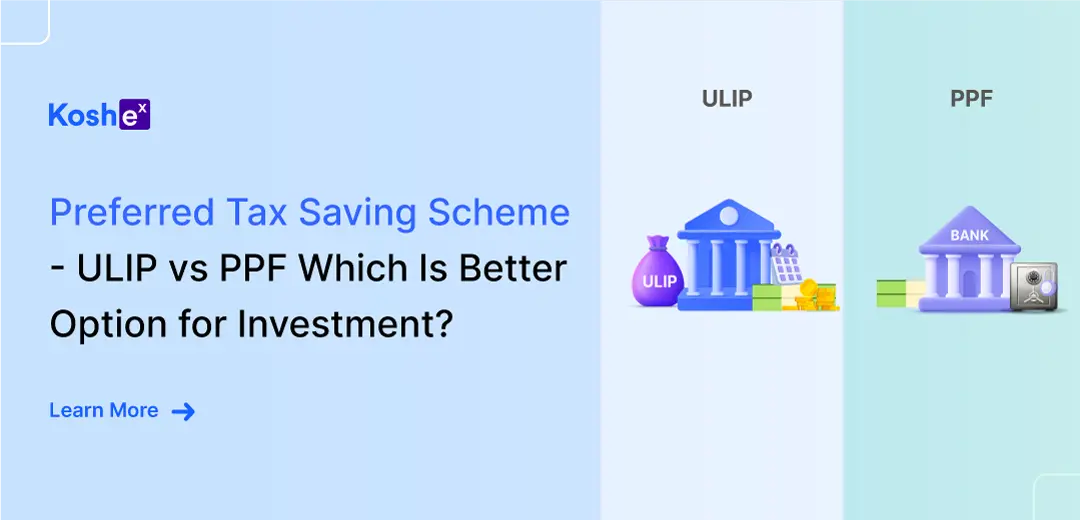Is Equity Mutual funds Safe For Long-Term Investment?
Equity mutual funds are touted as the best option for beating inflation. But are they suitable to hold for the long-term? In this blog, we are exploring equity mutual funds and whether they are the right long-term investment option.
Meet Equity Mutual Funds
Equity mutual funds invest a major portion of your money in equities and stocks of different companies. They are also known as Growth Funds.
These funds generate higher returns than fixed deposits or debt mutual funds. However, these funds come with a certain amount of risk since their performance and return is dependent on the equity market situation.
If you are wondering what mutual funds are and how they work, please read our detailed article about mutual funds and how you can choose the right one for you and your goals.
Types Of Equity Mutual Funds
The main goal of equity mutual funds is capital appreciation, but it also depends on the types of stocks that the fund invests in. Below are the types of equity mutual funds.
Based On Investment Objective
Large-Cap Equity Funds – This equity mutual fund invests a minimum of 80% of its assets in companies that rank between 1 and 100 in terms of full market capitalization.
These funds are relatively less risky compared to mid-cap and small-cap funds.
Mid-Cap Equity Funds – These equity funds invest a minimum of 65% of their assets in equity shares of companies that rank between 101-250 in terms of market capitalization.
They are relatively riskier than large-cap funds. However, they have the potential to generate better returns than large-cap funds.
Large & Mid-Cap Funds – These equity funds invest a minimum of 35% of their assets in both large-cap and mid-cap companies.
The remaining 30% of the assets can be invested in equities other than large and mid-cap and/or debt and money market instruments and such other securities as may be permitted by SEBI.
Small-Cap Funds – This equity mutual fund invests a minimum of 65% of its assets in equity shares of companies that rank 251 and above in terms of market capitalization.
These funds are riskier than large and mid-cap funds but have the potential to provide reasonable returns.
Multi-Cap Funds – These equity funds invest in large-cap, mid-cap, and small-cap companies according to the relevant market conditions. This fund gives the investors an opportunity to invest in a diversified portfolio across market capitalization.
Based On Investment Strategy
These are the major investment strategies followed by the fund house.
- Top-Down Strategy – This strategy means that the sector is chosen first and then the stocks within that sector are purchased in the portfolio.
- Bottom-Up Strategy – This means that well-researched stocks are bought irrespective of the sector.
- Growth Strategy – It means that the fund will invest in companies that have a consistent track record of profitability and growth and are likely to continue on this path.
- Value Strategy – It means that the fund will invest in companies that have the potential to grow exponentially in the future and are currently available at a lower value.
Based On Asset Allocation
There are a few funds that divide the portfolio allocation between mostly equity (at least 65%) and the remaining in debt or between domestic and international equity.
For example, Equity Linked Savings Scheme (ELSS funds) is a tax-saving mutual fund that invests mostly in equity and equity-related schemes. ELSS funds help you save up to ₹1,50,000 annually in taxes.
Now, that we have understood the different types of equity mutual funds, let us take a look at what kind of long-term strategy for equity mutual funds.
The Long-Term Investment Approach In Equity Mutual Funds
Every time you read an article about equity mutual funds, they usually advise you to stay invested in equity funds for the long-term i.e. 7 to 10 years. But why is that so? Because the equity market is highly volatile, especially in the short term.
Thus, experts recommend sticking to your equity investment for as long as possible. Investing in equity mutual funds or stocks with the mindset of following them through to the maximum tenure possible is known as a long-term investment approach.
If you are looking to stay invested in equity mutual funds for the long term, here’s how you can do it efficiently.
Start As Early As Possible
Most times, people start a SIP (Systematic Investment Plan) in equity mutual funds. So, it is a good idea to start an SIP as early as possible.
The earlier you begin, the longer you contribute and the longer your principal contribution earns returns. That means your returns compound for longer and therefore earn more returns.
Also, the longer your time frame, the more time you have for corrective action in case your investment goes against you. On top of that, time will automatically regulate your portfolio volatility, reducing your loss over time.
Opt For Growth Plans
There are two types of plans within mutual funds – Growth and Dividend plans. Growth plans reinvest your profits in the same scheme while dividend plans give your profits as dividends.
It is important to not fall for the regular payouts in the form of dividends.
Apart from withdrawing a part of your wealth, dividends also lower the compounding effect. If you choose a dividend plan and then reinvest the dividends at the same rate of yield, then your wealth will be neutral. However, investors rarely do that.
So, the better option is to choose growth plans where compounding is automatic. Growth plans create more wealth in the long run with lower levels of risk.
Be Regular With Your SIPs
We know that, when you invest in SIPs, you get more units during a market crash. So, people tend to wait for the market to decline to start an SIP.
However, it is not a good idea to time your SIP. Finding out the tops and the bottoms of the market is neither possible nor is it needed. It is a good idea to invest a fixed amount of SIP each month and then, just stick to it. In this way, you can continue making more returns over a long period of time.
Monitor & Rebalance As Needed
The essential part of wealth creation is continuous monitoring and rebalancing of one’s portfolio. However, it is important to not overdo it.
Just because your portfolio has been in the red for a week doesn’t mean you have to rebalance it all together. There are three types of rebalancing that are required.
Firstly, when you are stuck in funds that are underperforming for a prolonged period of time, it is a good idea to put your money into better performers.
Secondly, you can consider temporarily reallocating part of your portfolio before key macro expectations such as interest rate shifts, macro shifts, inflation shifts, valuation shifts, etc.,
Thirdly, if your allocation to an asset class crosses a point, then you need to reallocate it back to the original levels. Apart from ensuring profit booking at frothy levels, this will also help keep your portfolio liquid when opportunities come up.
In The End…
When you invest in equity mutual funds, it is a good idea to keep at it for a long period to earn higher returns, which in turn, will help you beat inflation.
Staying invested for a long time also helps mitigate risks and brings down the chances of incurring losses. Hence, a long-term approach is advised when it comes to equity mutual funds.
If you are looking for a long-term investment instrument, then equity mutual funds are the right choice for you. You can invest in these funds for free at Koshex.
All you need to do is create an account with us and get started on your investment journey. Sign up with us today.









Leave a Comment